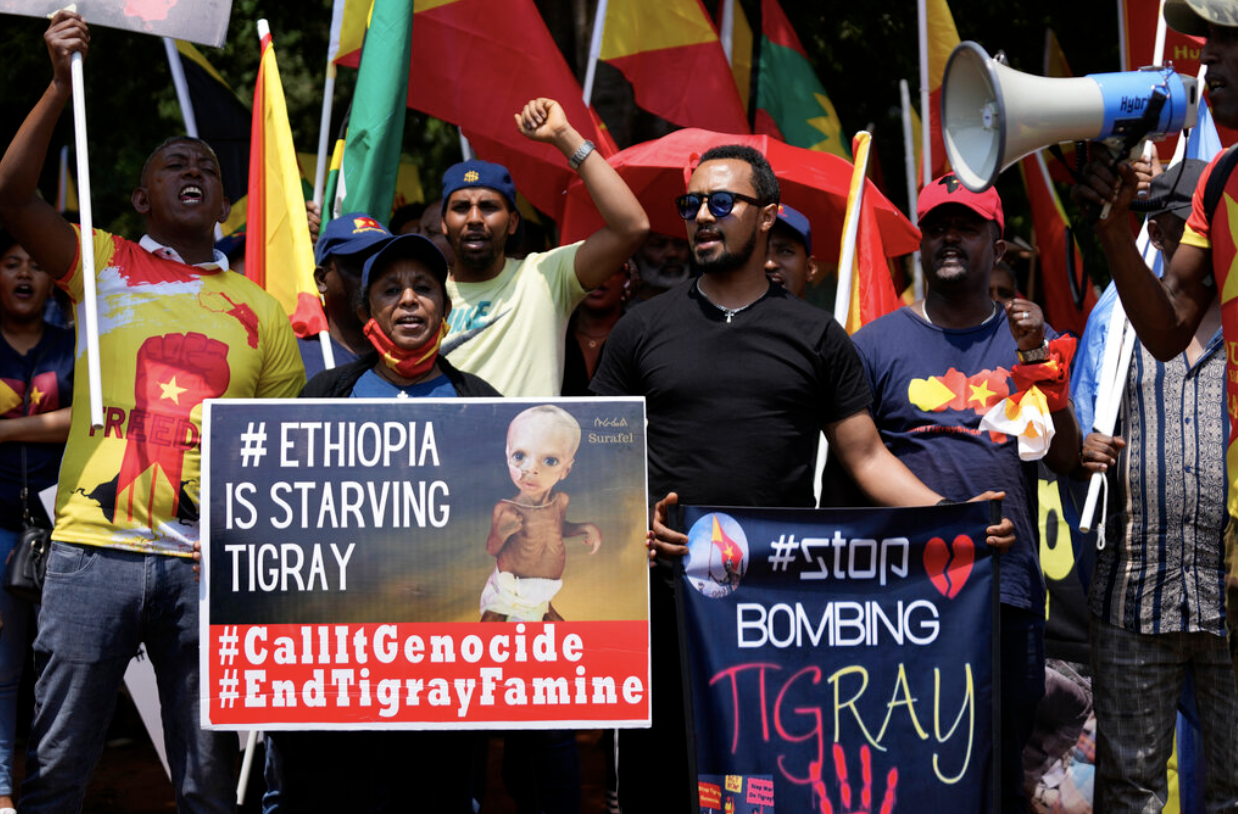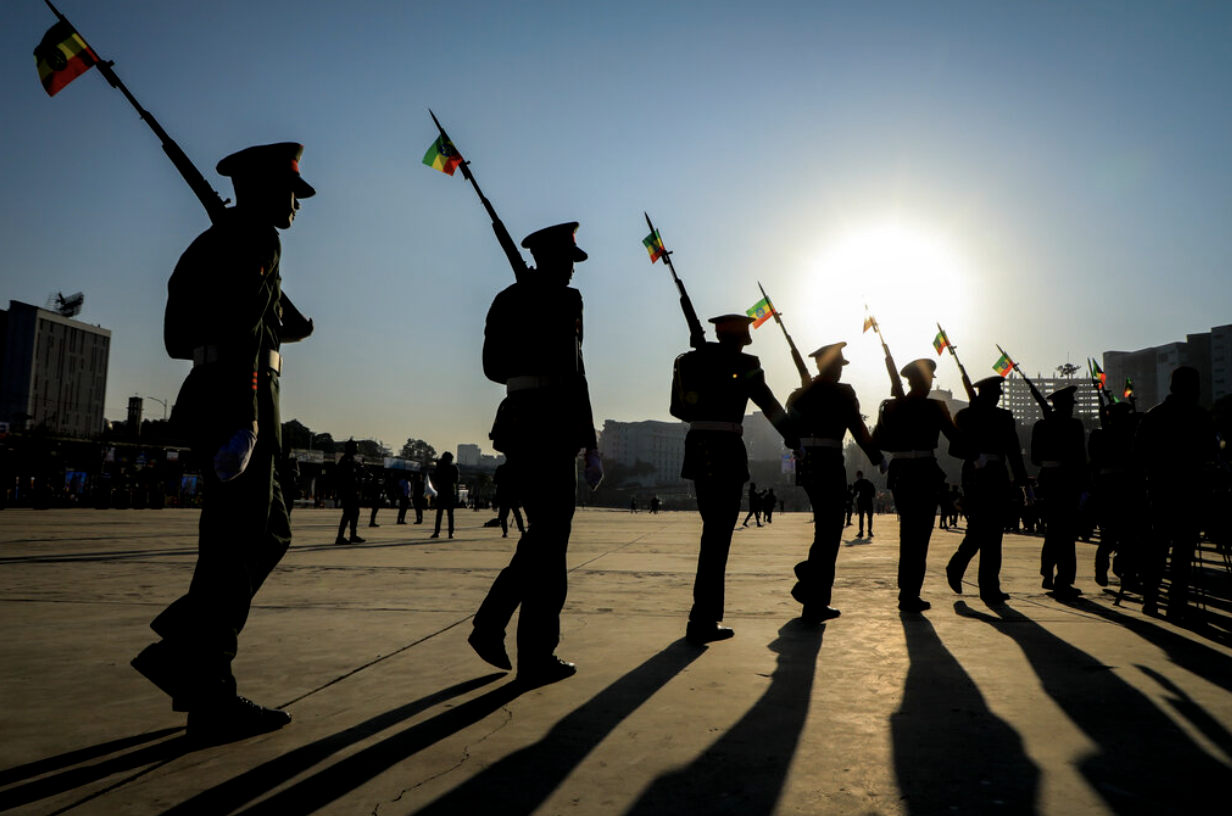Ethiopia’s Government Captures Three Major Cities in Tigray
People from Tigray protesting the conflict between the Tigray rebels and the Ethiopian government outside the United Arab Emirates in Pretoria, South Africa, on Wednesday. Photo: Themba Hadebe/Associated Press
The Government Communication Service released a statement on Tuesday that Ethiopian and Eritrean forces have taken control of three cities in Tigray, the northern part of Ethiopia: Shire, Alamata and Korem.
The Ethiopian government added that they would take “maximum care” to protect civilians. They also promised that they would provide support for humanitarian groups to bring aid into Tigray and restore medical and humanitarian aid services to areas under their control.
Addis Ababa, the capital of Ethiopia, blamed the Popular Front for Liberation of Tigray (PFL) for the resurgence of the conflict. In a statement released on Monday by the Government Communication Service, they said that “the TPLF is solely responsible for the current situation” and the Ethiopian military has been forced to “adopt defensive measures to guarantee the sovereignty and territorial integrity" of Ethiopia.
The UN's partner organization, the International Rescue Committee (IRC), reported that one of their workers was killed in an attack in Tigray while delivering aid to women and children in Shire on Friday. The UN said that the conflict has had a devastating impact on civilians in what was already a horrible humanitarian situation. Hundreds of thousands have been displaced in Tigray, as well as in surrounding areas like Amhara and Afar.
The UN called for international awareness when the fighting escalated after civilian casualties were reported. They raised concerns that the Ethiopian government released airstrikes that “had been indiscriminate” and could affect many civilians in the area, as well as members of the Ethiopian forces.
On Saturday, the African Union (AU) called for a ceasefire in Tigray amidst an escalation of violence in the region. Chairperson Moussa Faki Mahamat said in a statement from AU, “following with great concern reports of increased fighting in the Tigray Region, there should be an immediate ceasefire”.
The Ethiopian parade with national flags in the capital, Addis Abada, to show support for the Ethiopian National Defense Force (ENDF) in Tigray last year. Photo: Associated Press
The war-torn part of the country has been affected by a civil war since November 2020. The latest surge in violence began in August after a five-month humanitarian truce. Ethiopia’s government declared a state of emergency in the northern region after accusing the opposing local government of attacking the federal troops.
In a statement released by President Abiy Ahmed’s office on November 4, 2020, they declared “that illegal and violent activities within the National Regional State of Tigray are endangering the constitution and constitutional order”. In September 2020, Tigray held an illegal local election in defiance to the federal government. Both factions- accused each other of plotting military conflict, eventually escalating the situation to a violent conflict.
According to the BBC, residents listened to news through radio sets in order to get updates on the situation and possibly acquire supplies. Many have been isolated by the ongoing civil war that has not allowed them to connect with areas outside of Tigray.
The most recent eruption of fighting led to a severe famine and lack of medical supplies in the area. Due to a closure of main roads and communications Tigray has not been able to receive any aid deliveries, affecting almost five million people living in the area. The lack of fuel has also led to food shortages in the entire northern region.
Though many efforts have been made to create peace negotiations and ceasefires, the constant attacks ruined any hope for truce. The Ethiopian government continues to blame TPLF for violating agreements on three different occasions, not allowing peace to last and end the war. The UN and other related NGOs, like the IRC, would only be able to provide aid to the region as the violence deescalates.


